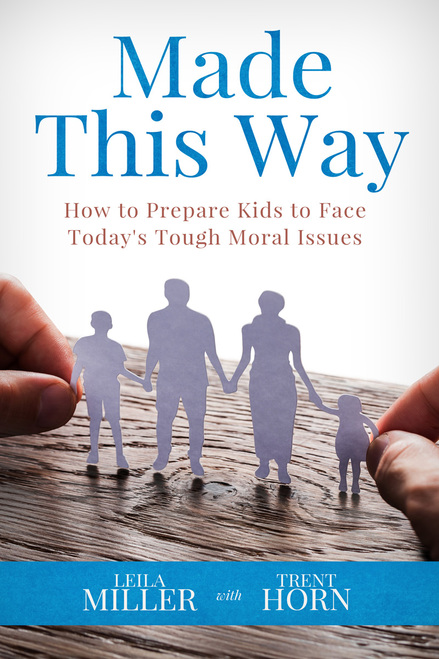“In a recent debate on my Facebook page, a woman stated her view on sex: “There is no universal purpose, beauty, or reason to sex—that is up to the individuals to decide for themselves.” Trent has also seen this attitude in a recent documentary he filmed that asked college students, “What is sex for?” The most popular answer was: “That’s up to each person to decide for themselves.”
This is a common belief of millions who claim that sex isn’t “for anything” in particular. Sex can be for pleasure, or recreation, or stress relief, or even a cure for boredom. It can be no more significant or meaningful than eating ice cream!
The best way to get past this “feelings-based” approach to sex is by applying the natural law principles we learned in chapter two.
Remind your teens that they should ask what sex “is for” and use the answer to that question to guide their moral decisions.
Designed for Marital Love
If sex is “just for pleasure,” then why do so many people become distraught when their “significant other” has sex with someone else? This pain—universally understood and documented in literature, songs, and poems throughout millennia—is a huge hint that sex isn’t as casual or meaningless as some people claim it is.
Others say that sex is the way we express a deep emotional connection with another person. But we can have a deep emotional connection to many different people (friends, siblings, parents, children) with whom it would be wrong to have a sexual connection.
So, what distinguishes sexual relationships from all other kinds of human intimacy?
The answer is found in the design of the body.
When we look at the body, including the sexual faculty itself, we see that sex is ordered toward a life-long consequence, i.e., the conception of a child. This truth is like a signpost that men and women should not engage in sex before they’ve made the life-long commitment (marriage) that provides the foundation for the fruit of that act (a baby!).
Of course, many people will say that these consequences can be avoided by contraceptive use (which we will address later), rendering sex outside of marriage “no big deal.” But even if contraception didn’t fail often (and boy, it does), pre-marital sex would still be morally wrong with grave consequences. Why? Because it turns people into liars of the highest order.
Let me explain.
Deceptive Body Language
Your teen will probably agree that, in general, the words we speak should be honest and truthful. But we can also “speak” with our bodies to express ideas. For example, a handshake can mean “pleased to meet you” and a hug can mean “I am here for you.” When people use their bodies to communicate what is not true, they often experience discomfort.
Think about the uneasiness you feel when you’re forced to stand too close to a stranger on a bus or subway. Your bodies are expressing the language of social intimacy because they are so close together, but that intimacy is a lie—you don’t even know each other!
Similarly, sex outside of marriage expresses the intimacy of a permanent one-flesh union, but in a relationship (no matter how long it’s been going on) that has no such commitment.
It is a lie, told through the body, that speaks louder than words.
So, when it comes to sex, a teen girl may feel this discomfort when she doesn’t want the guy to see her naked. She may want to “get it over with” in hopes that sex will lead to a fulfilling relationship. Or, she may be sexually willing, but feel crushed when the boy does not contact her again. Boys, on the other hand, may resist being affectionate after sex or even refuse to talk to the girl they’ve slept with, because they don’t want to express with their hearts the deep, marital love they expressed with their bodies.
This discomfort is not some culturally induced guilt from a bygone era; it’s a strong signal that this type of vulnerable intimacy is only appropriate in the safety of a life-long, exclusive commitment. Sex outside of marriage is wrong because the body turns a beautiful truth (“I reveal and give my whole self to you in an irrevocable gift”) into a selfish and harmful lie. When your teens ask, you can give them a simple, reasonable answer:
Sex exists for the expression of marital love. Sex outside of marriage uses the body to express a permanent, fruitful union of love that doesn’t exist between unmarried couples. Sex outside of marriage is a lie, and we must never lie to the people we claim to love.”
Love & truth,
Matthew

